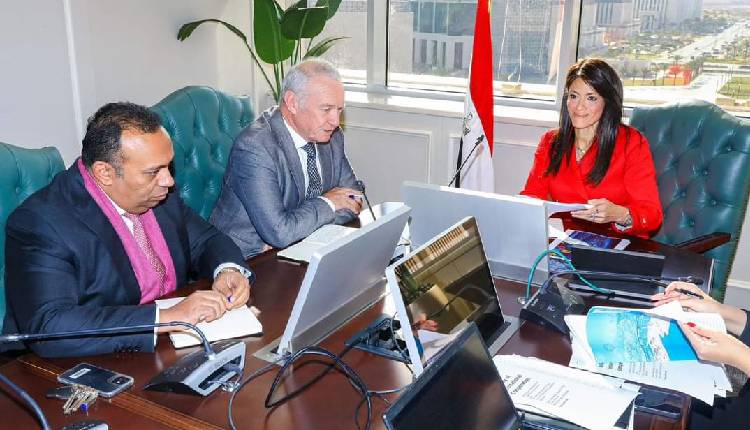Cooperation opportunities between the Egyptian government and the World Bank (WB) to enhance technical support for state-owned enterprises, boost the private sector, and execute the State Ownership Policy Document, was the core of discussions in a meeting between Egyptian Minister of International Cooperation, Dr. Rania Al-Mashat, and the Chief Economist at the World Bank’s Egypt office, Mr. Mark Ahern, and the Private Sector Development Officer, Mr. Mohamed Al-Shayati, according to the Egyptian Cabinet statement on Thursday.
They reviewed progress in the World Bank’s study on foreign direct investment (FDI) in Egypt and the national strategy for industrial development and trade promotion.
These studies are crucial for the state to draw more foreign direct investments, localise industry across sectors, and reinforce collaborative efforts to meet Egypt’s goals and priorities, according to the statement.
“The two parties further discussed their continuous collaboration to boost the private sector’s role and foster an investment-friendly economic environment. This involves the World Bank offering technical assistance to the Council of Ministers’ Information and Decision Support Centre to execute the state ownership policy document introduced in 2022,” according to the statement.
Al-Mashat emphasised the ongoing collaboration with the World Bank to strengthen the private sector under the 2023–2027 strategic partnership framework, marking a new era of joint co-operation for prosperity.
She said that the strategy focuses on creating more quality job opportunities in the private sector by fostering an investment-friendly environment. It also targets investing in human skills and improving human capital results across all provinces by offering exceptional services in various sectors without bias. It aims to boost resilience to shocks and improve climate change adaptation capabilities.
Notably, the active portfolio of the development collaboration between Egypt and the World Bank Group comprises 14 projects valued at $6.9 billion that span various sectors, including education, health, transportation, social protection, renewable energy, water desalination, housing, local development, and the environment.
In late 2023, the Ministry initiated the Hafiz platform, which links development partners with diverse private sector companies, from large corporations to small, medium, and micro enterprises, as well as startups, to facilitate access to development financing, technical assistance, and consultancy services.
The platform serves as an all-encompassing portal for private sector engagement. It allows private sector entities, regardless of their size or industry, to discover and engage with opportunities, resources, and services available through worldwide collaborations with international development partners.
https://m.facebook.com/story.php/?story_fbid=844927261011029&id=100064812882317
